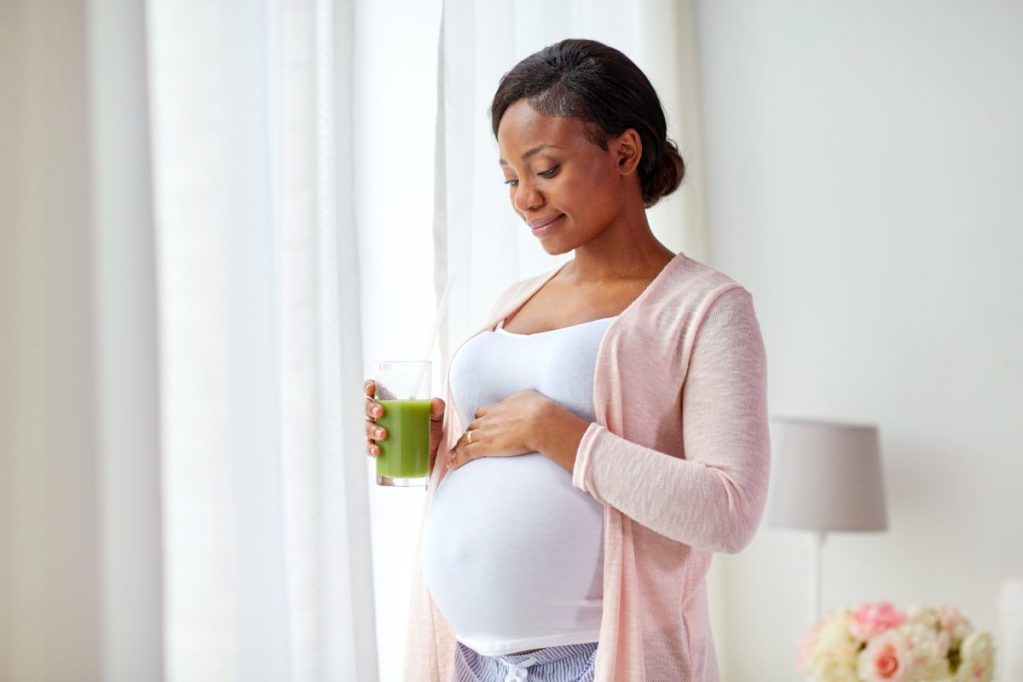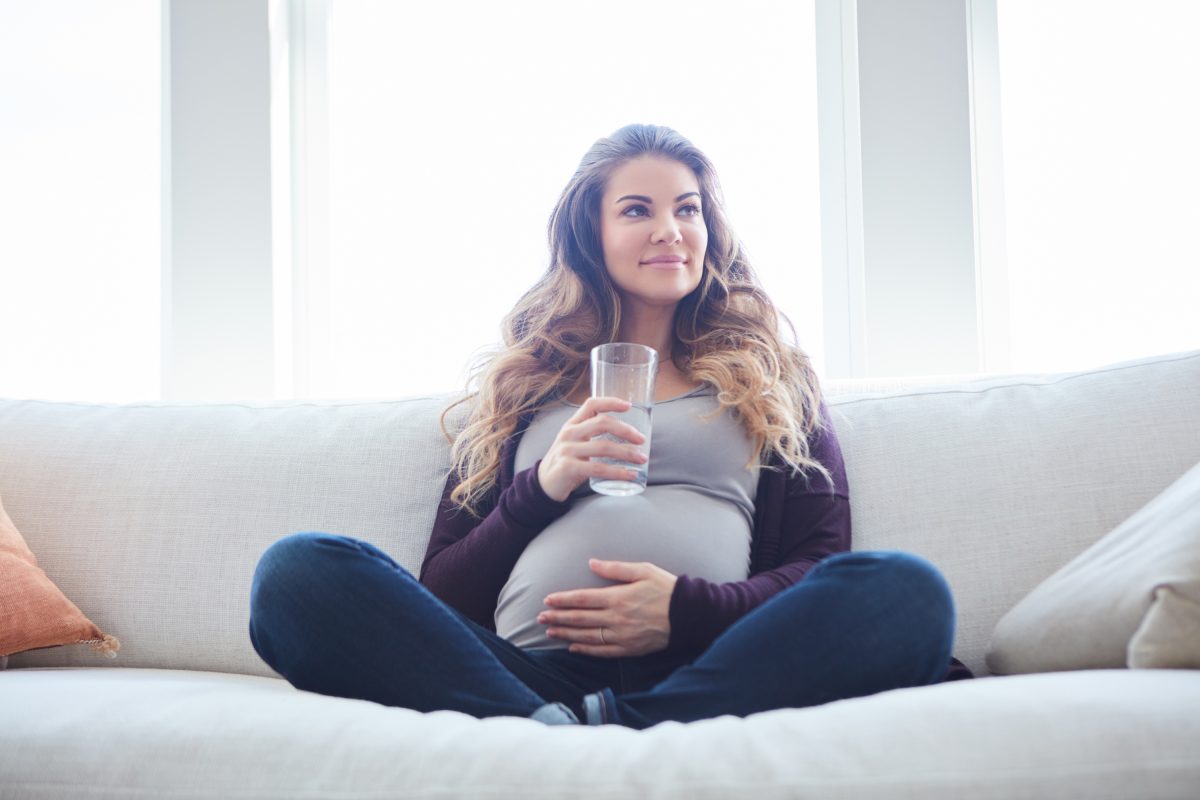
When you become pregnant, people say you’re eating for two, but what about drinking for two? Proper hydration is important for everyone, but especially during pregnancy. But did you know that there’s a difference between making sure you’re drinking enough fluids and experiencing extreme thirst during pregnancy? We’re here to break down whether extreme thirst during pregnancy is a common, normal, healthy part of pregnancy.
- Is excessive thirst during pregnancy normal?
- Natural causes of an increase in thirst during pregnancy
- How to deal with increased thirst during pregnancy
- Symptoms telling you to actually drink more fluids
- Health conditions that cause excessive thirst during pregnancy
- What defines excessive thirst?
- When to call the doctor
Although excessive thirst during pregnancy isn’t all that uncommon and most pregnant people will experience bouts of extreme thirst at some point during their pregnancy, it could be indicative of potentially serious health issues like gestational diabetes. Let’s look at the possibilities.

Is excessive thirst during pregnancy normal?
It certainly can be. “It’s entirely normal to feel extra thirsty during pregnancy, even during the first trimester,” says Dr. Donald Grant, a physician in the U.K.
Hunger and thirst both increase during pregnancy, so it’s just a matter of determining what is ‘increased’ versus what is ‘excessive.’ Excessive thirst would mean waking up to drink frequently through the night and having a dry mouth, not just wanting an extra couple of glasses of water. Even a huge increase in the number of liquids you’re craving is normal because of the large amounts of changes your body is undergoing.

Natural causes of an increase in thirst during pregnancy
There are many possibilities that could contribute to an increase in thirst during pregnancy. Although there’s no definitive answer, it’s likely a combination of all these reasons. None of these reasons are cause for concern and all are natural parts of pregnancy.
The normal suspects
- The amount of blood in your body increases dramatically during pregnancy, so it would make sense the amount of fluid you take in would need to increase to create more fluid as well.
- The pressure on your bladder leading to increased urine output could also mean you need to drink more often to keep replenishing yourself.
- All of your body’s needs also increase during pregnancy from calorie intake to sleeping time, so why would water intake be any different?
- Hormones like estrogen increase during pregnancy and cause extra thirst.
- Your kidneys are filtering more than ever and need more water for their extra work.
- You need more fluids in your body to create amniotic fluid.

How to deal with increased thirst during pregnancy
- Stay away from alcohol, soda, and caffeinated drinks
- Eat foods high in water
- Skip the salty snacks
- Keep your diet fresh
Listen to your body and up your water intake, but don’t add drinks like soda or coffee to quench your thirst. Keep water around you wherever you go. Eat foods with high liquid content like watermelon and lettuce, and make fruit smoothies for a variety in your diet. Sucking on ice chips also helps. Avoid salty foods like potato chips, since those will make you thirstier.
Remember that this thirst is just one symptom of pregnancy that is temporary. While constantly heading to the bathroom to pee is annoying, don’t drink less to pee less. If it ever feels overly excessive, talk to your doctor about it.

Symptoms telling you to actually drink more fluids
Now you know the reasons why your body is craving more water. Making a human is hard work, after all. But there are other physical symptoms to be on the lookout for to know you need to refill your water bottle.
- Pain/cramps in the legs
- Vision is a little blurred or different from normal
- Feeling dizzy
- More tired than normal (we know this one might be hard, you’re always tired when pregnant)
- Additional or sudden swelling in the feet and hands
Even if you think you are drinking more than enough water, if you’re experiencing any of these, drink more. You could always mix up your diet like we mentioned, with additional fruits and vegetables that are loaded with water.
You should also try cutting back on spicy foods in addition to reducing your salt intake. All of this combined will keep the water where it needs to be — in that baby brewing body.

Health conditions that cause excessive thirst during pregnancy
While an increase in thirst during pregnancy is natural, sometimes excessive thirst in pregnancy is a sign of a serious health condition. Gestational diabetes, HELLP, and dehydration are all reasons why you may experience excessive thirst during pregnancy.
Pregnant people are routinely screened for gestational diabetes around week 24, so you may have already had this test regardless. Increased thirst and dry mouth are two of the top signs of the condition along with fatigue, so certainly speak up if you are experiencing these symptoms.

What defines excessive thirst?
Pregnancy brings out the worrier in the best of us, so if you find yourself feeling a bit thirstier than normal, you may begin to worry that it’s a sign of a greater issue. We know it’s normal to feel extra thirsty when expecting, but what is excessive thirst? It’s important to note that while there is no exact definition of excessive thirst if you think that you’re always thirsty and constantly drinking without quenching that thirst, it’s time to consult your doctor.

When to call the doctor
Since you need more liquid intake during pregnancy, you’ll become dehydrated if you’re not keeping up, leaving you thirsty. If your urine is a dark color and your mouth feels parched, you could be dehydrated and need to drink more water. Push fluids and seek treatment if nothing changes or if you’re unable to drink enough. Sometimes morning sickness doesn’t allow you to stay hydrated, so you may need to get IV fluids at a hospital for hydration.
Only your doctor has the answers about whether your thirst is too extreme and is able to point you toward a possible underlying condition that needs treatment. An increase in thirst isn’t a red flag in itself, but a parched mouth and constant thirst could be a reason to call the doctor if there are other factors. It’s best to be safe and ask to see if any tests are warranted than to wonder if everything’s okay.
Growing a little human is hard work, and it comes along with a lot of side effects. Extreme thirst just happens to be one of them. Have that water bottle by yourself and keep hydrated so your little one stays nice and comfy in there.
Editors' Recommendations
- The ultimate nursery checklist of everything you need (and nothing you don’t)
- When do pregnancy cravings actually start? The answer may be surprising
- Glass vs. plastic baby bottles: Here’s what doctors have to say
- What it means if you lose weight during pregnancy – and when to worry
- The top cowboy and Western baby names that are riding high




